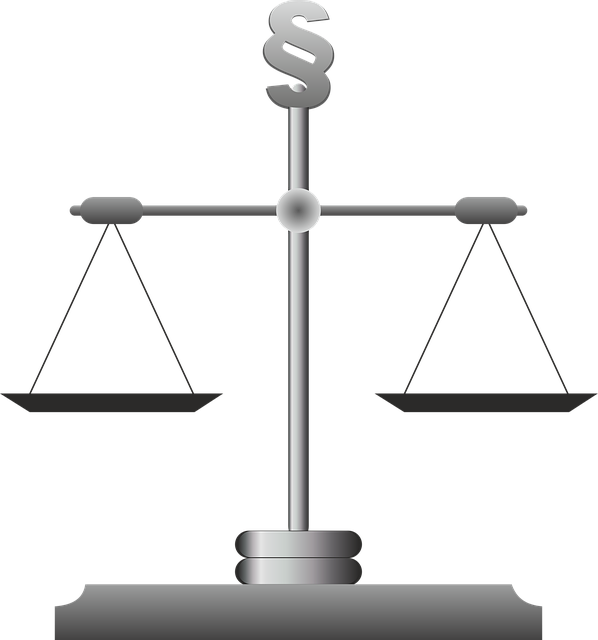Antitrust laws safeguard fair competition and consumer interests by preventing monopolies and promoting innovation. Understanding these laws is crucial for businesses to defend against false accusations of violations like price-fixing and market division. Building a robust defense involves strategic analysis, evidence review, expert testimony, and legal argumentation to challenge inconsistencies in allegations. Meticulously prepared defenses, backed by relevant documents, market analysis, and industry standards, can lead to favorable outcomes, protecting all stakeholders from unjust punishment.
Antitrust violation cases are pivotal in maintaining fair market competition. This article delves into the intricacies of antitrust laws, their crucial purpose, and common allegations that drive these cases. We explore strategic approaches for building a robust defense against false accusations, emphasizing the importance of legal expertise. Additionally, we navigate the court process, highlighting potential outcomes and offering insights to help businesses prepare and protect themselves in such scenarios.
- Understanding Antitrust Laws and Their Purpose
- Common Allegations in Violation Cases
- Building a Strong Legal Defense Strategy
- Navigating the Court Process and Potential Outcomes
Understanding Antitrust Laws and Their Purpose

Antitrust laws are designed to promote fair competition and prevent monopolies from dominating markets. These laws ensure that businesses operate within ethical boundaries, fostering a level playing field for all participants. The primary purpose is to safeguard consumers by encouraging competition, which drives innovation, improves product quality, and keeps prices reasonable. By understanding these regulations, companies can build a robust defense against false accusations, especially in today’s complex business landscape.
Knowing the ins and outs of antitrust laws is crucial for both corporate and individual clients. It enables businesses to navigate the legal complexities and ensure their practices align with regulatory standards. Furthermore, this knowledge is essential for philanthropic and political communities, as it promotes transparent and ethical business conduct, ultimately benefiting the wider society.
Common Allegations in Violation Cases

In antitrust violation cases, several common allegations surface frequently. Plaintiffs often accuse companies of engaging in monopolistic practices, price-fixing schemes, or market divisions, among other anti-competitive behaviors. These claims typically center around abuses of power, suppression of competition, and unfair pricing strategies. When faced with such accusations, building a defense against false accusations is paramount. Legal teams must carefully examine the facts and circumstances to challenge the validity of these allegations.
An unprecedented track record of successful defenses in antitrust cases can be achieved by presenting robust evidence and leveraging expert testimony. Jury trials, for instance, offer a platform to expose inconsistencies and present alternative explanations, ensuring that the truth prevails. Through strategic legal argumentation and meticulous investigation, defense attorneys can safeguard their clients’ interests and mitigate potential damages, even in complex and high-stakes scenarios.
Building a Strong Legal Defense Strategy

When facing antitrust violation accusations, building a robust legal defense is paramount to navigating the complex landscape of investigations and potential enforcement actions. The first step involves a meticulous review of all evidence and allegations, allowing lawyers to identify any weaknesses or inconsistencies in the case against their client. This strategic analysis is crucial during all stages of the investigative and enforcement process, as it helps to shape the defense narrative.
In high-stakes cases involving white collar and economic crimes, a well-crafted defense strategy can significantly influence the outcome. Lawyers may employ various tactics such as challenging the admissibility of evidence, questioning the motivations behind the accusation, or presenting alternative interpretations of the alleged conduct. By thoroughly understanding the nuances of antitrust laws and regulations, legal teams can construct a compelling argument that protects their client’s interests while addressing any perceived violations.
Navigating the Court Process and Potential Outcomes

Navigating the court process in antitrust violation cases can be complex and challenging, especially when fighting against false accusations. Building a defense requires a thorough understanding of the legal framework and a strategic approach. The initial step involves gathering all relevant documents, evidence, and expert opinions to support the client’s position. Corporate and individual clients alike must carefully review their actions and decisions to ensure they can demonstrate compliance with antitrust laws. A well-prepared defense strategy can lead to various potential outcomes, including a complete dismissal of all charges if the allegations are found to be unsubstantiated.
Achieving extraordinary results in such cases often depends on meticulous planning and execution. Legal teams must thoroughly analyze market conditions, competitive behaviors, and industry standards to refute any collusion or anti-competitive practices alleged by prosecutors. By presenting compelling arguments and robust evidence, defendants can protect their interests and secure favorable judgments. The ultimate goal is to safeguard the rights of both corporations and individuals, ensuring that justice is served without undue punishment for legitimate business activities.
In the face of antitrust violation allegations, understanding the laws and crafting a robust defense strategy are paramount. By familiarizing oneself with common accusations, gathering comprehensive evidence, and employing expert legal counsel, individuals and businesses can effectively navigate the court process. Remember, a well-prepared defense is key to safeguarding against false accusations and ensuring a fair outcome. Building a strong legal shield enables you to protect your reputation and maintain the integrity of your operations in the competitive market landscape.






